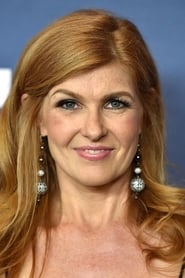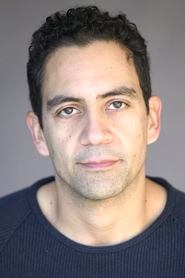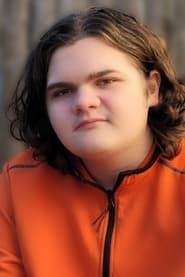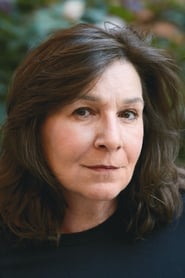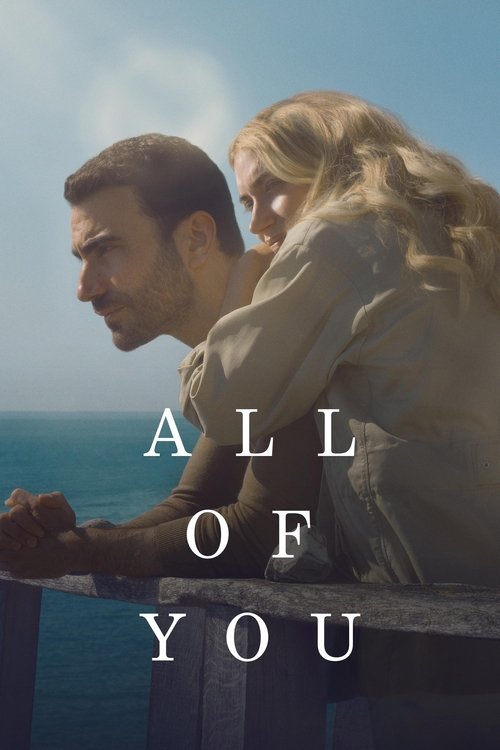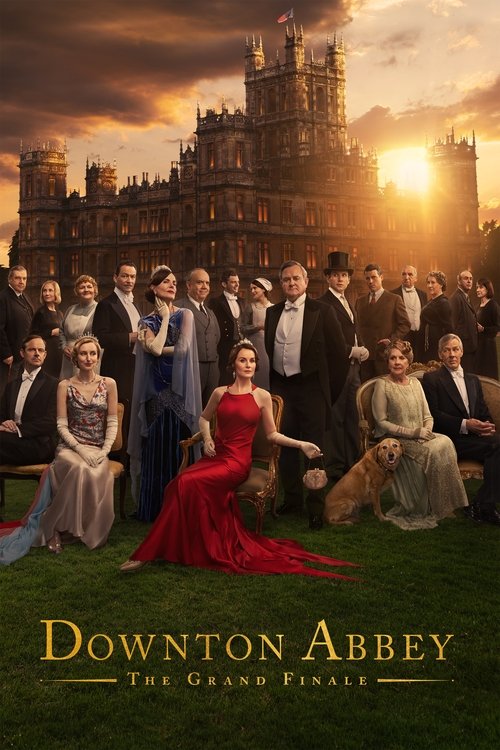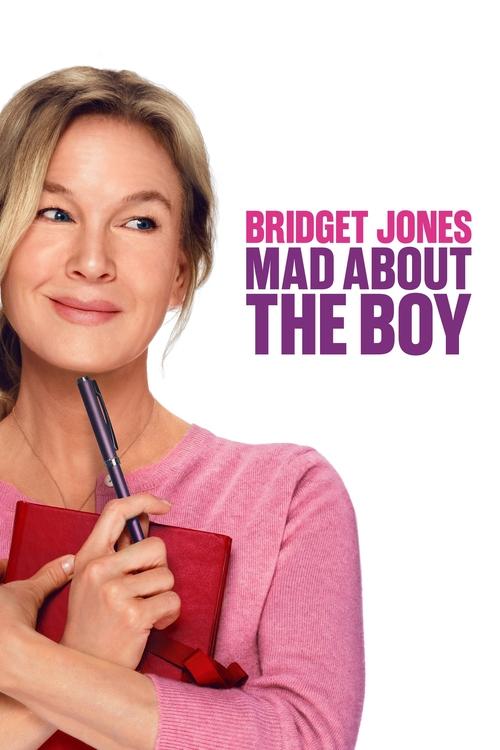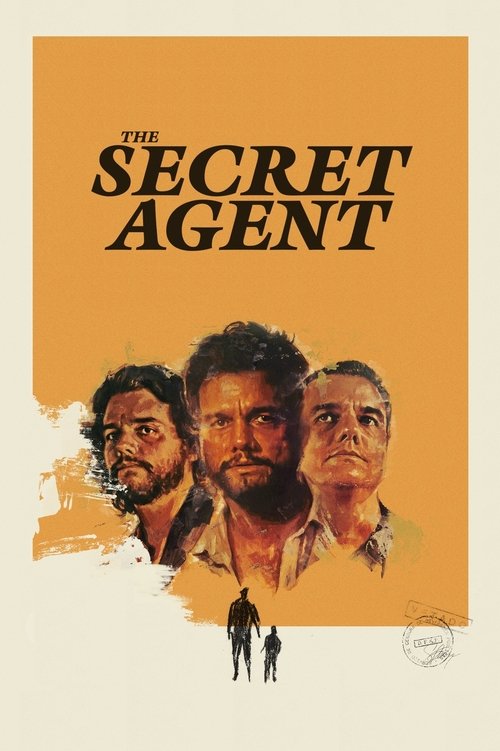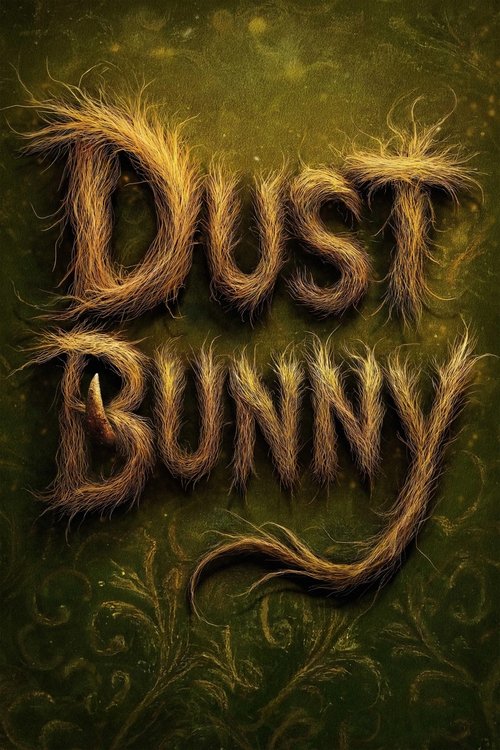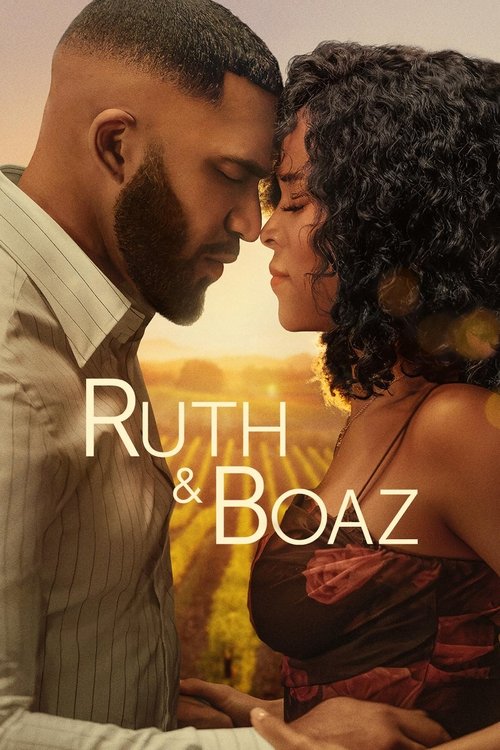
Ask Your Own Question
What is the plot?
Alex Rose watches her mother Elizabeth struggle with metastatic cancer through a series of hospital visits and late-night conversations, and when Elizabeth dies the family convenes to sort out the aftermath. At Elizabeth's memorial the Rose family listens to lawyers and advisers explain the provisional terms Elizabeth left: the family home remains unsold for one year, Rose Cosmetics will be transferred into new management with Alex's sister‑in‑law installed as chief executive, and each sibling besides Alex will automatically receive 20 percent of the company's shares. Alex learns that her own portion of the company has been conditioned on completing a set of tasks Elizabeth wrote for her when Alex was thirteen: a list designed to force Alex out of stasis and toward personal growth. The list sits in a box of mementos alongside letters and photographs, and the envelope that contains Elizabeth's final instruction directs Alex to meet the executor of the estate, a young attorney named Brad Ackerman, who will monitor her progress on the so‑called life list and determine whether she fulfills her mother's requirements.
Brad arrives at the reading dressed conservatively and explains the mechanics of Elizabeth's plan. He shows Alex a recorded message Elizabeth prepared before her death; on tape Elizabeth addresses a teenage Alex's stubbornness and outlines the tests she expects her daughter to complete. Elizabeth stresses one task above all: Alex must learn what true love means. Brad reads aloud Elizabeth's definition: the person must demonstrate consistent kindness, provoke Alex to become a better person, and awaken feelings so strong Alex can imagine building a family with them. Brad tells Alex that she will have checkpoints, and at each meeting he will evaluate whether she has met the standards for the items on the list. Alex watches the funeral attendees file out of the chapel and, face taut with grief, agrees to play along long enough to secure her inheritance.
Alex brings the list home and shows parts of it to her boyfriend Finn at a kitchen table strewn with condolence cards and legal documents. Finn reacts with enthusiasm; he sketches an imagined future where Alex and he co‑found a gaming startup and run it together. When Alex probes deeper, Finn shrugs off Elizabeth's seriousness and treats the tasks as a whimsical game. Alex feels the mismatch acutely; she wants something concrete, and Finn offers airy promises. She tells him she is going to try to complete Elizabeth's challenges, and Finn's casual dismissal convinces Alex she must undertake the list on her own terms. They separate quietly that week, Alex telling him that she needs space to figure out who she is without his half‑formed plans.
Alex's first attempt at the list takes her to a local comedy club where an open‑mic night has drawn a mix of amateur performers. Alex has never performed stand‑up, but one list item challenges her to do something that scares her publicly. She rehearses a short set of observations about her childhood and Elizabeth's rituals, and when a heckler tries to derail her, Alex holds eye contact, slices through the taunt with a rapid retort and earns the audience's applause. The victory is small but sharp; she feels adrenaline and a new confidence in speaking for herself among strangers.
Another item asks her to give service to young people, so Alex volunteers to teach at a shelter that runs educational programs for high school students. On her first day at the shelter she distributes worksheets and struggles to connect with one adolescent who refuses to participate. Alex sits on a folding chair beneath fluorescent lights while the boy scowls at his phone. She asks him about his interests; he offers nothing. Frustrated, Alex seeks guidance from the shelter's coordinator, Garrett Taylor, a man in his thirties with a patient voice and a history of working with difficult youths. Garrett suggests a different approach: find an access point into the boy's life rather than insist on rigid curriculum. He directs Alex to try a music assignment he says the boy responded to before. Alex follows Garrett's advice and after a tense hour the student hums a phrase, then tentatively completes the exercise. Garrett thanks Alex and invites her to assist at more sessions. Their exchanges at the shelter lengthen into lunches and longer conversations about why the shelter exists and about Elizabeth's legacy. Alex begins to rely on Garrett's steady temperament; he listens when she talks about the list and he challenges her gently when she retreats into resentment or self‑protection.
As Alex reconnects with the world beyond Rose family expectations, she digs into the family's complicated past. She confronts her brothers -- Julian and Lucas -- at a family brunch about their treatment of their father and about Elizabeth's reasons for structuring the estate as she did. Questions and accusations ricochet across the table: Julian defends Elizabeth's choices as pragmatic, Lucas worries the siblings are falling into old patterns of blame, and Alex, annoyed and determined, declares she will find their father. She presses the brothers for information and learns that the family's history is more fractured than she expected: Elizabeth kept some truths private, including that Alex's biological father is a musician known professionally as Johnny Alvarez. Alex files the name away and calls old family friends until she tracks down minimal leads. The brothers bristle; for a time family conversations fray into silent suppers and curt text messages.
One of Elizabeth's tasks requires Alex to relearn music that shaped her childhood. She returns to her former piano teacher, an older woman who keeps a small studio on the second floor of an aging arts building. The teacher gives Alex the familiar sheet music to Debussy's Clair de Lune and directs her toward a group recital slated at a neighborhood conservatory. Alex practices slowly, stubbornly, working through calluses and old anxieties. She falters in front of the piano at first, but as she pushes through the repeated measures she remembers Elizabeth's hands correcting her wrist positioning. On the night of the group recital, Alex sits backstage, palms sweating, and listens to other performers. When it is her turn she walks onto the stage, places her fingers on the keys, and plays. Her performance is ragged in places but sincere; the act of completing the recital marks another check on Elizabeth's list and brings a small sense of closure with the mother who taught her to listen.
Alex now involves Garrett in multiple tasks from the list. They go on a volunteer trip to a community garden where they clear debris and plant late‑season beds; she agrees to accompany him to a charity event where local celebrities will appear; and she accepts his invitation to teach another class at the shelter. At the charity gala they meet Patrick Ewing, who stops at their table to pose for photos and to compliment the shelter's program. Alex stands beside Garrett near the raffle table, and an aide hands them a framed photograph that someone has donated. The exchange feels ordinary and steady; Alex finds herself warmed by Garrett's presence and by how he sees people in ways that are neither condescending nor needy.
Brad Ackerman checks in regularly. He schedules midpoints, asks for proof of the tasks she claims to have completed, and attends one shelter session to observe. His demeanor is professional, but his presence makes Alex self‑conscious. Over time Brad and Alex develop a rapport that extends beyond legalities. Brad confesses details of his own life in small snippets -- he left a previous relationship because he could not commit to a future that felt compromised, he grew up far from the city, and he once ruined a familial holiday by being overly literal about obligations. He keeps notes, hands over a printed copy of Elizabeth's recorded criteria, and challenges Alex to articulate why each item matters.
When Alex and Garrett begin to grow closer romantic feelings surface subtly. Garrett kisses Alex one night after they lock up the shelter. The kiss is tentative and honest. Alex includes Garrett on trips connected to the life list, and he participates with an empathy she has not experienced with Finn. Yet Alex hesitates to claim Garrett as the person Elizabeth described on tape: he is kind and encouraging, but Alex struggles to imagine him in the white‑picket future Elizabeth outlines. Brad's practical questions about love and legacy continue to unsettle her. One weekend Alex invites Garrett to join her on an assignment to take strangers on an impromptu music appreciation walk; he says yes, but miscommunications about schedules and priorities create the first rift between them. Garrett grows irritated when Alex organizes extra meetings around Brad's checkups; Alex becomes defensive, insisting that Elizabeth designed the rules and she will follow them. The argument ends with quiet distance rather than a breakup, but the rift leaves Alex unsettled.
Brad proposes a plan to help Alex complete one of the list's more personal items: find and connect with her father. He offers to drive with Alex to a town outside the city where a lead suggests Johnny Alvarez performs more regularly. Alex hesitates but accepts; she does not expect how the car trip will become intimate. They drive past service stations and diner signs, and along the way Brad plays old vinyl records Elizabeth had loved. In a motel room they share a late dinner, a bottle of cheap wine, and a long conversation about Elizabeth's iron will and the compromises families make. They fall onto the bed together in a moment that begins with comfort and moves into passion. In the morning they wake tangled. Brad tells Alex, almost apologetically, that he had ended his prior relationship because he realized he could not be himself around his former partner; he admits he misjudged his readiness when he signed onto Elizabeth's executor role. Alex learns in the aftermath that Brad left that relationship at least in part because of his closeness with her during the estate process. The revelation hits Alex like cold water; she had not expected Brad to have erased another life for the chance to help her fulfill Elizabeth's plan. She feels both flattered and alarmed by his willingness to upend his own commitments, and she worries that Brad's feelings complicate his role as executor.
News of Alex's encounter with Brad circulates in fragmentary ways. Garrett hears only that Alex went on a road trip with the estate's lawyer, and he interprets the omission of details as a betrayal. They argue in the shelter's parking lot; Garrett accuses Alex of playing games with both the estate's rules and people's hearts. Alex counters that she did not plan to develop anything with Brad. Their voices rise and fall; patrons leave their volunteer stations and watch the confrontation begin and end in bruised silence. Garrett storms off into the city and rejects her calls for days. Alex tries to repair the damage by showing him the parts of the list she has completed and by offering to pause her meetings with Brad, but Garrett refuses. The separation tests Alex's ability to define love by Elizabeth's criteria rather than by fear.
In a bid to mend the family rifts and to strengthen their ties to Elizabeth's memory, Alex's brother Lucas organizes a spontaneous camping trip. He gathers Julian and other siblings and persuades Alex to come with them to a lakeside site where they had once spent a holiday with Elizabeth. Under a sky freckled with stars, the siblings make a small fire, and conversation moves from polite reminiscence to blunt confessions. Julian admits he felt burdened by the company takeover and by Elizabeth's decisions; Lucas apologizes for withholding information about Johnny Alvarez; Alex reveals the details of Brad's trip and the intimacy that followed. The night becomes a slow, honest reckoning with old grievances. At dawn they sit on a dock, and one by one they recount a memory of Elizabeth's particular kindness. The recollections shift the siblings' resentments into a fragile forgiveness; they do not solve every dispute, but they ease the pressure that has separated them. The campout ends with patched relationships and a tentative plan for how they will handle Elizabeth's house and the company over the coming months.
Buoyed by the campout's truce, Alex resumes the search for her father and pursues a lead that brings her to a dim, crowded music venue. Under a red stage light she watches a set by Johnny Alvarez, a musician in his fifties with a weathered voice and an old guitar. His songs pull at a strand of memory in Alex; she remembers Elizabeth humming the same melodies as she tucked Alex into bed. After the show Alex waits outside and confronts Johnny with a string of questions about Elizabeth's younger years and why he disappeared from their lives. Johnny, first defensive, then remorseful, tells Alex he left because the music demanded fugitive choices and because he thought Elizabeth wanted stability for their child. His explanations are halting and full of regret. Alex lashes out in anger and then retreats; she wants a father who is steady, and this man is a version of the absent figure she has spelled out in old imaginings. Johnny insists he wants to be part of her life now, and Alex, exhausted, promises nothing but says she will meet him again on neutral ground.
As December approaches, Brad schedules a final estate review at the law office. Alex leaves Garrett still cold and unresolved and walks into the firm's mahogany lobby. She expects a final judgment on whether the entries she has checked off satisfy Elizabeth's criteria. Brad is not there when she arrives; his absence unnerves her. The firm's partners shuffle papers and one of Brad's colleagues calls her into a conference room. There the attorney who is handling the formalities explains that while Alex has not completed every item on her mother's list, Elizabeth's last directive exercised a discretion the family had not fully anticipated. The lawyers slide a deed across the table: Elizabeth has bequeathed the family home to Alex outright, separate from the corporate shares. The lawyer explains Elizabeth's legal power to make the transfer, and Alex listens while the words unspool. The deed means Alex will hold the residence Elizabeth kept from the market for a year; it also means that for the moment she does not own direct shares in Rose Cosmetics but she retains the property that anchors the family's history.
Brad arrives as Alex signs the acknowledgement forms; his hair is slightly disheveled and his suit shows the wear of weeks spent navigating estate meetings. In the law office's small conference room he hands Alex a flash drive. On it is a final video Elizabeth recorded. Alex presses play and Elizabeth addresses her one more time, softer now, no longer in the brisk tones of the executor's instructions but as a mother. Elizabeth tells Alex to keep opening her heart. She urges Alex to find true love not as a practical test but as a lived condition: seek someone kind, someone who makes you better, someone you can imagine building a family with. The tape ends with Elizabeth smiling with the ache of someone who was organizing the future for loved ones but could not walk into it herself.
The camera cuts back to Alex and Brad in the small office as the video ends. Elizabeth's words leave a quiet pressure in the room. Brad reaches for Alex's hand, and she finds herself leaning into the touch. Outside the building snow begins to fall, thin flakes drifting past the windows. Alex tells Brad she does not know if she has passed the true love test, but she does not reject him. They step out of the law office into a cold slant of December light and embrace in the street. The embrace is careful and warm; Brad does not make promises, and Alex does not demand them. Garrett watches the pair from across the avenue with a look of disappointment that softens into acceptance; he turns away and walks toward the shelter, knuckles digging into his coat pockets.
On New Year's Eve the Rose family convenes in the living room of the house Elizabeth has left to Alex. The walls retain Elizabeth's faint perfume and the photographs she arranged of children and vacations. Julian stands and raises a glass to their mother. He thanks Elizabeth -- aloud, though she cannot hear -- for the structure that forced them into motion during a hard year and for the obligations that revealed overlooked things about themselves. Family members exchange hugs; Lucas slips Alex a joke; Johnny Alvarez stands at the edge of the room and watches his daughter with a look that is part apology and part tentative hope. Brad stands beside Alex with his arm around her waist, and Garrett is there as well, speaking quietly with Julian by the rear window. Alex moves through the room accepting embraces, and when the clock strikes midnight she and Brad step onto the porch. Snow muffles sound; neighborhood fireworks bloom in the distance. Brad puts his hand to Alex's cheek and says simply that he wants to try, if she will have him. Alex closes her eyes and returns the small affirmative. Inside the house voices rise with celebration; outside, snow covers the walkways Elizabeth once shoveled. The final image is of Alex holding Brad's hand as the family gathers behind them, a quiet ordered promise of beginnings built on the decisions Elizabeth left in motion.
What is the ending?
The ending of The Life List (2025) reveals that after completing nearly all the items on her childhood life list--except for finding true love--Alex receives an envelope containing her inheritance. It turns out her inheritance is her mother's house and everything inside it, along with a trust fund established to cover expenses and repairs, supporting Alex's modest income as a teacher.
Expanding on the ending in a narrative, chronological fashion:
The final scenes begin after Alex has diligently worked through her mother's dictated life list, a set of goals written when she was 13. Despite completing challenges like performing stand-up comedy, stepping out of her comfort zone through volunteer teaching, and other tasks, there remains one item she has yet to fulfill: finding true love.
Alex meets with Brad, the young lawyer overseeing her mother's will. Brad hands her a sealed envelope, contingent on finishing the list. Alex opens it to discover that her inheritance is not a vast fortune or a corporate empire, but the family home. Her mother carefully arranged for a trust fund to ensure Alex could afford the upkeep, understanding her career choice would not provide extravagant wealth.
This ending underscores a personal closure Alex receives--her mother's final gift is stability and a nurturing home, symbolizing love and legacy rather than material success. It reflects the movie's broader themes about searching for personal fulfillment beyond conventional achievements. Alex's journey through her mother's list pushed her to explore her authentic desires and face fears, and in the end, she is entrusted with a foundation to build her life on her own terms.
The closing moments leave Alex standing in the home, now hers, symbolizing both a physical and emotional inheritance--a place to start fresh and live the life she truly wants, reinforced by the memories and lessons her mother left behind.
Is there a post-credit scene?
The movie The Life List (2025) does not have a post-credits scene. The story concludes definitively with the New Year's Eve celebration where Alex confesses her love to Brad, and they share a kiss, symbolizing a hopeful new beginning. The narrative wraps up all major plot points by this moment, providing a satisfying closure without any additional scenes after the credits.
What are the key challenges Alex faces while completing her life list?
Alex faces several challenges while completing her life list, including stepping out of her comfort zone by performing standup comedy, volunteering as a teacher in a shelter for high schoolers, and navigating complex emotions related to her mother's death and her own aspirations. She also struggles with the conditions of her inheritance, which requires her to complete the list and pass a four-point true love test involving openness, kindness, inspiration, and imagining a future with children.
How does Alex's relationship with the lawyer Brad evolve during the story?
Alex's relationship with Brad, the young lawyer overseeing her inheritance tasks, develops as she completes her life list. Despite Brad having a long-distance girlfriend, he and Alex connect in meaningful ways. Their interactions provide both support and romantic tension, intertwining with Alex's personal growth and the unfolding of her mother's legacy.
What role does Alex's mother Elizabeth play in guiding her journey?
Elizabeth, Alex's mother, plays a pivotal role posthumously by leaving a video and a childhood life list for Alex. Elizabeth's instructions and the videos she recorded serve as a guide and motivation for Alex to rediscover her true self and aspirations. Elizabeth's challenge is designed to prevent Alex from settling into a life of duty rather than passion, pushing her to live fully and authentically.
What kinds of tasks are included in Alex's life list, and how do they impact her?
Alex's life list includes tasks such as performing standup comedy, getting tattoos, volunteering as a teacher, and finding true love. These tasks are meant to push her beyond her comfort zone and help her reconnect with her youthful dreams. While some critics note that the tasks seem generic and have limited impact on Alex's life, the film portrays them as a roadmap for her personal growth and self-discovery, culminating in emotional and romantic developments.
How does the film portray Alex's transformation throughout the story?
The film portrays Alex's transformation as a journey of self-evolution where she takes risks, faces fears, and steps into her mother's legacy. As she completes each item on the life list, Alex grows more confident and authentic, moving from a life of obligation to one of passion and purpose. Her experiences, including her interactions with Brad and her volunteer work, deepen her understanding of herself and what she truly wants from life.
Is this family friendly?
The movie The Life List (2025) can be considered generally family-friendly, with no violence and no explicit sexual content. It features themes of self-discovery, family relationships, and personal growth, which are presented in a mature but accessible way.
However, there are a few elements that may be potentially upsetting or sensitive for children or sensitive viewers:
- Emotional content related to grieving the death of a mother and family tensions, including characters displaying apathy or insensitivity toward others' grief. These themes may be distressing, especially for younger or more sensitive children.
- A brief scene where a man is accidentally seen naked by children, though there is no explicit nudity shown to the audience.
- Some relationship dynamics and character attitudes, especially involving the protagonist's romantic relationships and family conflicts, which might feel complex or unsettling for some viewers.
There is no violence or strong language reported. Overall, the film focuses more on emotional growth than dramatic or intense content.
In summary, parents should be aware that while there is no explicit or violent content, the movie does contain emotional themes around loss, family conflict, and maturation that might be upsetting to sensitive viewers or younger children. It would be best suited for older children, teenagers, and adults who can process themes of grief and personal struggle.
Does the dog die?
For the movie The Life List produced in 2025, there is no information in the available sources indicating that a dog dies in the film. The plot focuses on Alex completing tasks from a childhood list left by her deceased mother to unlock her inheritance, involving personal growth and relationships, but no mention is made of a dog or any dog dying in the story. Therefore, it can be confidently stated that the dog does not die in The Life List.






